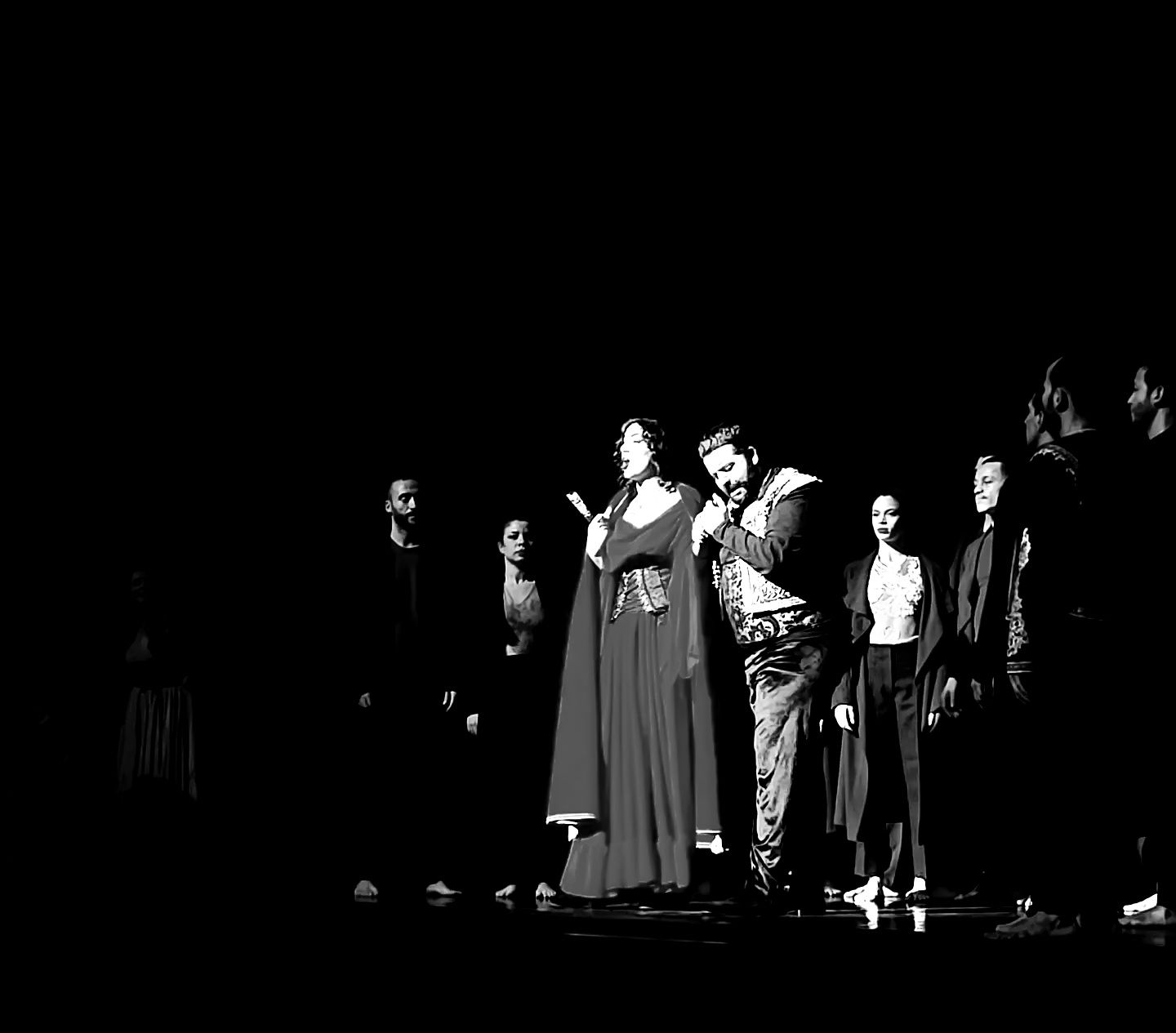For the first time, “Carmen” does not die and conquers Tunis. It's the triumph of talent

This review originally appeared on the Italian "Strumenti Politici".
“Carmen” seduces and conquers the Tunisian public. Bizet's opera, staged for the first time in Tunisia on February 14th and 15th, was sold out at the Opera Hall in the City of Culture of Tunis. A show that excites, re-proposing the free spirit of the Tunisian woman embodied by Carmen and the theme of universal love. Choreographed and directed by Sofiane Aboukra and staged by the Opera Ballet and the Tunisian Symphony Orchestra, long queues to access the theater confirm the public's thirst for art, culture, and beauty. A trinomial that "Carmen," produced by the Tunis Opera Theatre, the center of ballet and choreographic arts, the center of music and opera, was able to sublimate.
Love is far away; you can wait for it. Don't wait any longer; it's here! Free she was born; free she will die. Sometimes a cigar maker, sometimes a smuggler, a bit of a witch, and often in love. She is capable of making Brigadier Don José (Hassen Doss) desert or of persuading the bullfighter Escamillo (Haythem Hadhiri), she is love's ally, like a rebellious bird and Bohemian child who resembles her so much: Carmen. It is on these two syllables that Prosper Mérimée built a story from which George Bizet drew a character that his work transformed into a myth. That of the free woman who listens to her desire, without worrying about decorum, defying death at the point of the knife of a deserter devoured by passion. If Carmen represents passion, Micaela (Amina Baklouti, Nesrine Mahbouli) is the other female protagonist, embodying the purity of the same feeling. Two sides of the same coin, which can coexist in a single individual, but here placed at antipodes. But whoever says myth says infinite possible readings. The most popular opera in the world has become "Carmen," but it's still open to the most innovative approaches, just like any universal masterpiece.
Director Abou Lagraa's creation conveys vivid emotions; his show allows us to see Carmen, masterfully played by Maram Bouhbal, through José's eyes. And in the vertigo of a precise acting direction, the eternal two-way dance of eternal love is reproduced, because in Abou Lagraa's "Carmen," Don José does not kill her, as expected in the last act, and in the end, she will marry Escamillo.
For the costumes in the show, there are two different styles: one more modern and one more traditional. "Carmen" is the soul that wants to feel free, accompanied by a counterpoint of the people. The law is told in a colder style, together with the dancers (Houda Riahi, Omaima Manai, Wael Marghni, Abdel Monaim, Khemis Hazem Chebbi, Hichem Chebli, Cyrine Kalai, Ranim Kefi, Omar Abbes, Baya Bouzgarrou, Sabrina Zehri, Fatma Balti, Abdel Kader Drihli, Hamdi Trabelsi, Khouloud Ben Abdallah, Kais Harbaoui, Houssem Eddin Achouri), who’s elegant and coordinated movements accompany Carmen on stage. To make Tunis fall in love, in addition to the gypsy who knows the arts to seduce men, Frasquita (Wajd Akrout) and Mercedes (Zeineb Cherif), the Dancaire (Mohamed Ali Zouch), Moralés (Dhia Errayes), the Remendado (Haythem Gdiri) and Lillas Pastia (Ichrak Matar). With the support of six musicians from the Italian Ente Luglio Musicale Trapanese, directed by Fadi Ben Othman, and the Tunis Opera Choir, directed by Elias Balaghi, the initiative is the result of a series of creative residencies, a collaboration with the French Institute and the Italian Cultural Institute of Tunis which, with its support, allowed the conductor Nicoletta Conti, the costume designer Paola Lo Sciuto and the six musicians to spend a period of work and training alongside to the talented Tunisian artists.
“I am very happy to have been able to participate in this extraordinary event.” The costume designer Paola Lo Sciuto said, underlining that "staging an opera like Carmen is already a very complex job, and for the first time in Tunis, bringing together many figures, professional and amatorial, to create an ambitious show in such a short time, it was a successful and extraordinary undertaking. I am happy with the result, despite many difficulties." The artist reiterated how important it was "to see the commitment, all the dedication and the will to succeed on the part of all the collaborators, assistants and technicians, especially Sihem Belkhodja the director of the Dance Pole of the Tunis Opera Theater. The choreographer and director, Abou Lagraa, with whom I have been collaborating for years, has done an extraordinary job, because it is not easy to agree with different ways of working and is far from one's own artistic culture, such as that of opera". The testimonies collected behind the scenes reveal the commitment to creating this memorable performance. “It was truly a pleasure to carry out this project with the orchestra, but also with the children, who were very good,” comments Kais Harbaoui, a professional dancer at the Ballet de l'Opéra de Tunis. From the coordination of the different artistic elements to the creation of a harmonious coherence on stage, every detail has been carefully orchestrated to seal a success that deserves an international tour. Zeineb Cherif, who played Mercedes, assistant to the artistic director of the Tunisian choir, tells us, “It was a wonderful experience for me as well as for my friends, colleagues, artists, and soloists, because we are all Tunisians for the first time. We had so much pleasure working with the dancers and moving around the stage. The choir and orchestra conducted by Fadi Ben Othman and Ilyes Blagui were very powerful. It is a pride to have created a work in just three months in Tunisia." Abou Lagraa is satisfied with having won the challenge, underscoring that “Carmen” is the first Maghreb opera with an entirely Tunisian cast. He expresses his pride in contributing to the artistic history of local theater.